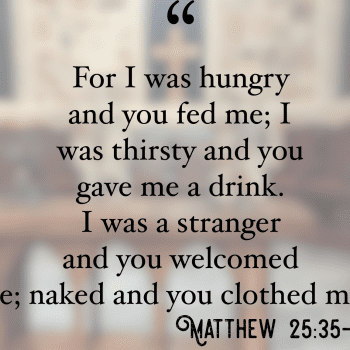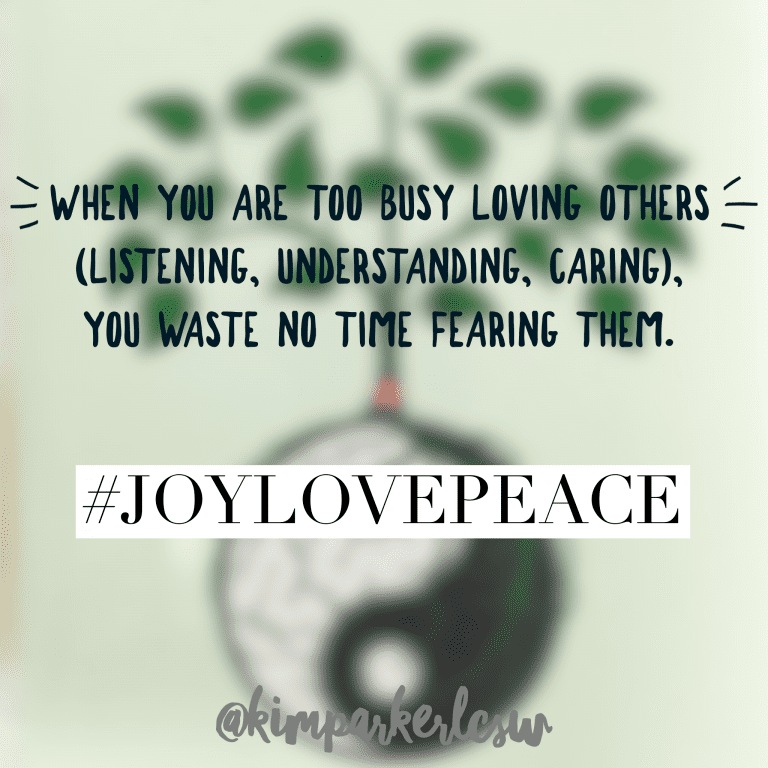Systemic issues aside, I am my own worst enemy and you are yours. If you haven’t read about my East meets West, refugee to immigrant to social worker journey that gave me these hard-earned insights in part 1, you can read it here. The following thoughts are lessons gathered not from reading textbooks or online education (although they helped), but from the school of hard knocks. Maybe these reflections from my personal and professional life will spare you from having to shed too many tears, blood, or sweat from your own learning curve?
At the root of love is a combination of acceptance and appreciation. Fear and anger get in the way of connecting. Gift exchange and friendships must be mutual. When we have not learned these basic truths about ourselves and others, we suffer.
Acceptance:
The prerequisite for love is acceptance. We cannot love people whom we cannot fully accept regardless of how they come across, whatever behaviors or attitudes they exhibit.
Loving others does not mean that we agree with everything they think or espouse. We can love them for being fellow human beings, a work in progress like us.
Accepting someone does not mean that we have to validate their beliefs, philosophy, politics, or behaviors/choices.
We cannot offer full acceptance to anyone when we have not accepted ourselves unequivocally.
If you grew up in a legalistic Christian home, chances are that you’ve learned to be hard on yourself. The God of this type of upbringing is a God of fire and brimstone, not a God of grace and mercy. This is an inaccurate, incomplete portrayal of the God of the Bible, who is both.
Coming from this type of short-sighted understanding of Christianity, some believers have left the church altogether. These folks find their fellow Christians to be self-righteous, oppressive, or judgmental. Some would even say hypocritical.
Others, who were raised in this kind of Christian home who’ve stayed in the body of Christ as grown adults, struggle with accepting themselves because they are continually trying to outperform themselves on the list of good vs bad, right vs wrong, worthy of love vs unredeemable.
They have not understood that we, as human beings, are each unconditionally flawed and that we are our own worst enemies.
We are all fallen in various ways, though no more, no less than our neighbor.
And our Creator God already knew this. Hence, the pre-emptive, redemptive, necessary work of Jesus on the cross.
Full acceptance does not require a list of qualifiers. It is accepting a fellow human being as equally (albeit differently) flawed.
Full acceptance is deeper than acts of service. It is not about performance or being virtuous.
Full acceptance cannot be faked. It is a soft heart and an open mind.

Suppression of hurt, disappointment, and anger prevents full acceptance.
Unforgiveness or a hardened heart prevents full acceptance.
Full acceptance is not conditional, does not irritate easily, threaten or throw piercing glares, has no room for fear or judgment.
Full acceptance can be modeled by parents to children, by adult parents to adult children, by a person to his/her spouse, by one sibling to another, even one friend to another.
But it is first modeled by God to His believers through the cross of crucifixion.
Anger and Fear:
We have not fully accepted someone with whom we feel anger.
Angry tones, voice, words, or behaviors make us unapproachable.
An unapproachable stance suggests non-acceptance. It suggests a lack of understanding of a fellow human or a distrustful, judgmental viewpoint of someone.
We must take care of our anger first, acknowledge it, seek out the cause, learn to let go of our hurt and expectations, or channel it into a meaningful inspiration.
God did not overlook you or give you the short end of the stick. Think differently, more clearly, with the mind of Christ to free yourself from more suffering. See 2 Cor 10:5.
Hurt inside is anger exhibited. Anger exhibited reflects hurt inside.

Be secure in your self-identity so that your pride is not easily hurt (see identity in Christ).
Return anger (offensive words or aggressive stance) with understanding to soften the blow or channel it elsewhere.
Oftentimes, anger results from unmet expectations. These expectations include our need to be accepted, respected, appreciated, valued, and loved.
God has already perfectly accepted, respected, appreciated, valued, and loved us.
Fear is a reflection of our natural inclination to survive.
Fear is valid when based on the real understanding that people can not only hurt themselves but also hurt us.
Lack of understanding or information can increase our fear of the other.
Unchecked fear can lead to defensiveness, sometimes appearing to be anger and non-acceptance.
If we have judged someone as being unworthy to share our living spaces, merely because they behave differently and we have not taken the chance to get to know them, then we have not accepted them.
Many folks are loving their neighbor every day (putting up with differences, misunderstandings, and hurt in a patient, gracious way).
Your children need your understanding, your acceptance, and some boundaries drawn with love and logic, but not your fear or anger.
Appreciation:
We cannot love someone whom we do not appreciate on a basic level. For example, we cannot love a neighbor whom we do not appreciate as someone who has something to offer us.
Appreciation makes for horizontal friendships. A sense of obligation or duty makes for vertical relationships.
The body of Christ has no room for jealousy, envy, pettiness, or resentment. Let the left foot work quietly with a sense of purpose. Let the right foot do her job with dignity. Let the left arm not resent the presence of the right arm. Let the hands not condescend on the arms, etc…
Differences in cultures, ethnicity, or socioeconomic status are real, but we can each still appreciate the gift of a neighbor, a fellow human being. We can still appreciate the value of not being isolated but sharing our living spaces with a fellow sojourner in this life.
Fear and anger can coexist with love in its active form (acts of service, gift giving), but not with love in its simple form (acceptance and appreciation).
In other words, when we harbor unresolved fear or anger toward a person, we are not accepting nor appreciating him/her.
The willful act of dutifully loving someone by serving them or giving them gifts can diminish our fear and anger, leading to acceptance and appreciation of the receiver, but not necessarily.
Sometimes we delude ourselves into believing that our wounded, hardened hearts can be masked as loving, respectable, or Christian.
Airing out grievances allows the hearts to heal, the mind to think more freely. Suppressing grievances will not lead to forgiving or forgetting.
Gifts:
We cannot receive a gift that we have not accepted. Conversely, we can accept a gift, but not receive its blessings.
If we feel unworthy of someone’s gift, then we have not understood the fact that none of us deserve any gifts. None of us is more worthy than another.
God set the golden example by freely giving us salvation (eternal relationship with Him) through the shed blood of Jesus Christ.
A gift is not a gift if we feel that somehow, we’ve earned it or done something wonderful to deserve it. Rather, that is called compensation.
A gift that has strings attached is an expectation, a condition (whether spoken or not). To truly be a gift, it must be generously given with a free spirit with no hidden expectations, demands, or requirements for reciprocation in any form.
A gift must be acknowledged as an unearned blessing in order for us to appreciate its full value.
If we feel obligated to receive, then that is not truly a gift, but a burden, a responsibility.
If we are shamed for not receiving it, or not receiving it graciously enough, then it was not a gift in the first place.
Parents do best to view their children as precious gifts from above, not as a burden or a “right.”
Children are a gift to their adult caregivers to learn about the frailty of mankind and the majesty of God.
Friendship:
At the root of neighborly love is friendship. It is mutual acceptance and appreciation of each other.
Friendship is not hierarchical, contractual, or conditional love. It is equivalent, reciprocal, and liberating love.
It’s been said that friendship can divide our sorrows or double our joy.
A good friend is good for the soul, therapeutic, based on mutual understanding and connection.
Friendships are full of grace, the outpouring of a generous and kindred spirit. Friendships are a wonderful blessing to each friend.
Adults learn how to be a friend from the types of parents we had growing up. Attitudes and beliefs (sometimes unspoken) can often result in subconscious learning.
None of us deserve unconditional love. Not all of our characteristics deserve full acceptance. None of our performance deserves only appreciation or blessings.
Yet, we’ve been freely given the gift of unconditional love, as shown in full acceptance of us, that while we were still sinners, Christ died for us (see Romans 5:8).
So let us stop trying so hard to force everyone to “love” one another. Drop all the anger and blame. Let us seek to understand our common humanity. Let us accept others and be approachable. Let us appreciate and feel appreciated. Let the gifts flow freely and the friendships blossom naturally.
Let us just be.
Can you relate to any of these reflections? Share with us below.












